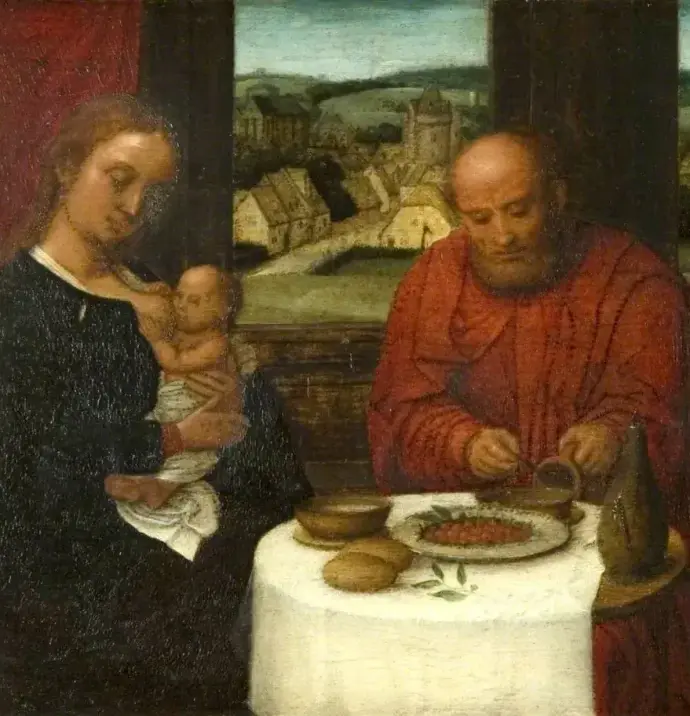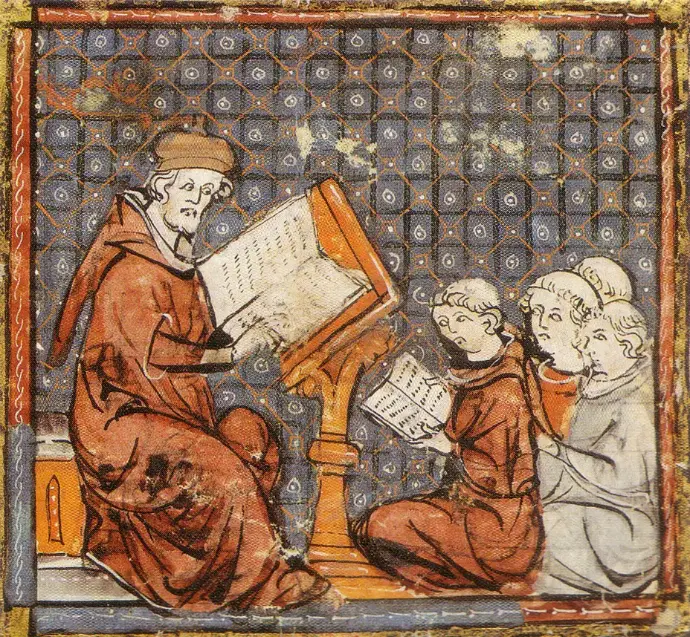Theme: Mary and the philosophy of economics

What can we learn about the philosophy of economics by taking Mary seriously as a locus philosophicus? Mary was intimately positioned in the overlapping hearts of both the divine economy and of a very concrete human economy/household – the holy family in Nazareth. What can we learn about the nature of the common good, capital, work, profit, etc. by looking at how she related to the supreme goodness she brought to fruition?
The conference dates are December 12th-13th, 2025.
The theme of the conference can be approached via one or more of these three (or more) methodological routes:
- Mary and the philosophy of economics in the strict sense. These paper proposals relate directly to the core setup of the Symposium. Taking Mary as a figure from history, scripture, theological and magisterial reflection, a philosophical method is now used to bring her in relation to questions in the philosophy of economics.
- Mary mediating between economics and theology. These paper proposals look at the role and figure of Mary at the intersection of economics and theology. They are more properly theological in nature but can do crucial preparatory work in presenting the figure of Mary and exploring the existing connections between theology and economics in relation to her, which can subsequently be further explored or developed philosophically.
- Philosophy mediating between economics and theology. These paper proposals look at how philosophical concepts, methods and presuppositions are shaping or could shape the relation between economics and theology. In view of a philosophically realist bridge between economics and theology, this is an important preparatory step for phase (1), especially in conjunction with (2).
Possible topics and questions include, but are nor limited to:
- If linking economics and economic value to a supreme and timeless metaphysical and/or theological goodness could lead to a static conception of economic value, how would Mary’s creaturely and personal role alter such a static conception without relinquishing the link with a transcendent good?
- What is the proper metaphysics for the relationship between economic goods and the supreme goods? Could personalism shed more light on Mary’s role there, or that of every other created person?
- If in the absence of a transcendent good, economics risks becoming an idol as an immanentised good, can the figure of Mary as a daughter, bride and mother maintain a distinct openness to transcendence?
- A realist metaphysical conception of profit could characterize it as an increase in the total goodness of creation. Given classical metaphysical themes like the convertibility of being and goodness, and goodness being diffusive of itself, this opens several philosophical routes to theological topics. In that regard, what would an economic conception of Mary’s role, mediated philosophically, look like? Was her entire life as dedicated to the incarnated supreme goodness the most profitable/meritorious human life ever lived by a created person?
- The notion of capital embodies a promise of a rather permanent and pure embodiment of value. Mediated philosophically, this can again be linked to (the incarnation of the) supreme goodness. What would a philosophical conception of Mary’s role there look like, i.e. in the build-up, maintenance and fruition of that highest capital?
- Both the Trinity as the supreme common good and the Holy Family as a concrete common good are thoroughly relational instead of monistic or unipolar. How could a focus on Mary’s role challenge and further our understanding of a more relational economy?
- Could Mary’s connection to Saturday (Sabbath) as the original moment of rest offer us an understanding of an economy of rest – in the indwelling presence of the supreme good – instead of an ever-increasing model of growth that is exhausting both people and the planet?
- What are the etymological, philosophical, theological and economic links and/or difference between consumption, enjoyment and fruition? Could the original meaning of fruitio (cf. Latin fruitio Dei), mediated via Mary and her enjoyment of the (divine) fruit of her womb offer us an alternative conception of non-alienating work and non-destructive consumption?
- What could be learned about the economics of the gift and gift-giving, given that Mary was full of grace and lived her life in a perfect oblation to God? Could a philosophical analysis of her role at the nexus of merit and grace shed light on the economics of gratuitousness? Can she offer us a direction for exploring an economics that is at its heart gratuitous and abundant?

To submit an abstract, send in a 500 word abstract by October 15th through this Google form. Notification of acceptance by October 31st.